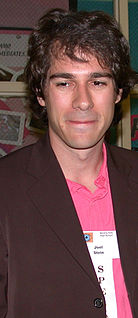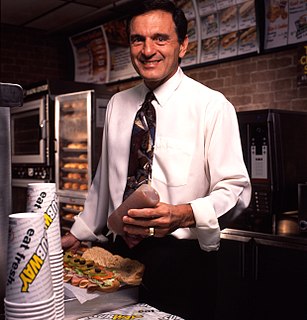A Quote by Paolo Bacigalupi
I used to work for a newspaper that covered local resource issues, and my coworkers and friends were journalists. Their reporting work was always pretty grim.
Related Quotes
I got married three days after graduation, and the first thing I did what I was expected to do which was to work on a small newspaper. So we were in Chicago where my husband worked for the Chicago Sun-Times and we were having dinner with his editor and he said 'So what are you 'gonna do honey?' and I said 'I'm going to work on a newspaper', and he said 'I don't think so", because Newspaper Guild regulations said that I couldn't work on the same newspaper as my husband.
Distinguish between the work and the job title. When I was leaving school in the early 1970s, many people wanted to be journalists, carrying out investigative reporting for print newspapers. Print newspapers may not exist in twenty years. But good thinking and good writing about issues that need to be reported and investigated will always be needed; but where this happens, what it is called, and who pays for it may be quite different than could have been envisioned by the great journalists of the past.
There is no business in the world - I don't care what it is, whether it's I.T. or manufacturing - that does not have what I may refer to as a blended resource base. You have high-end work. You have engineering work. You have some local knowledge you require. Then, you have some very low-cost work to be done.
Just from my own experience, a lot of the comedians I used to work with were miserable in their actual lives. I think you need to be able to see a lot of negative in things in order to extract material, so there's probably something to that. A lot of the people I used to work with were very, very, very unfunny offstage, so that's a pretty common thing.
The first victim in journalism today is proximity. I know I've used that word a lot. Because of foreign budgets, newspapers have consolidated, and journalists now cover dozens of countries at a time. It is physically not possible for one person to understand and live the unique sets of experiences in all these places in honest and meaningful ways. Outlets used to send journalists to places like Congo for months at a time, and they were stationed there for months or years. There was a sense of immersive reporting, and that has been a casualty of the shift in news over the past years.
My relationship with the journalists who covered the campaign was complicated. I often hid from the critical eye of their cameras and their omnipresent digital recorders, wary of the critique implicit in every captured moment. But I also grew to respect and understand their passion for their work, their love for the journey we were sharing.
My understanding from talking to a lot of people in the business has been that it used to be that a newspaper was considered a community service. Now they're being run as profit centers, and they're trying to get pretty high profit margins. As a result, investigative reporting has been seen as a problem.






































